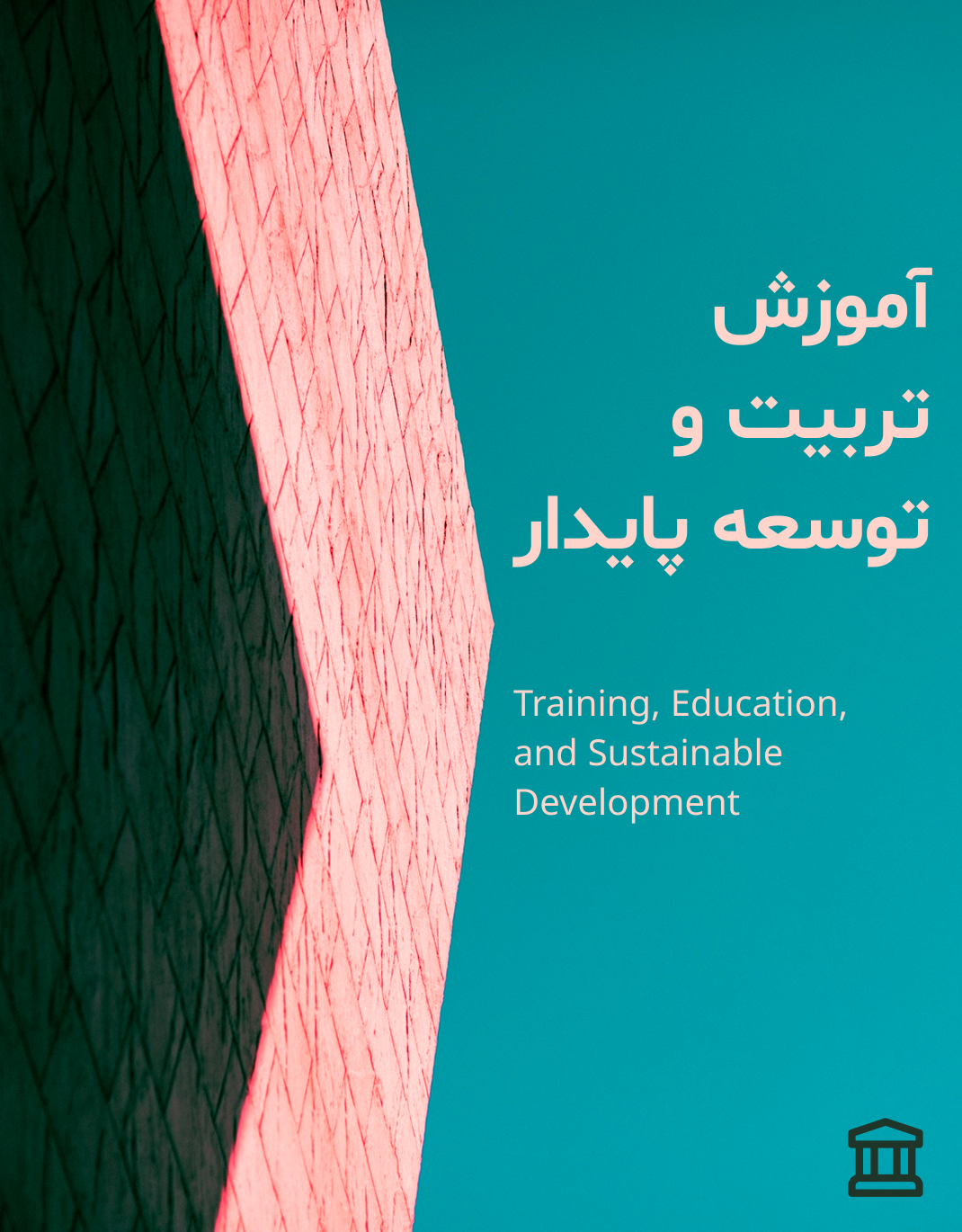Validation of a Model for Institutionalizing Research Culture among Teachers in Qeshm County
Keywords:
structural modeling, Research culture, confirmatory factor analysis, institutionalization, teachersAbstract
The purpose of this study was to design and validate a model for institutionalizing research culture among teachers in Qeshm County. The study employed an exploratory sequential mixed-methods design. In the qualitative phase, data were collected through semi-structured interviews with managers and educational experts and analyzed using open, axial, and selective coding. In the quantitative phase, a researcher-made questionnaire derived from qualitative findings was administered to 286 teachers selected through stratified random sampling. Quantitative data were analyzed using SPSS-22 and LISREL-8.8 through confirmatory factor analysis, independent t-tests, and Bartlett’s test. KMO values for all dimensions exceeded 0.7, and Bartlett’s test was significant (p<0.05), confirming the adequacy of the data for factor analysis. Model fit indices indicated strong validity: χ²/df = 2.45, RMSEA = 0.055, GFI = 0.96, AGFI = 0.94, NFI = 0.93, NNFI = 0.93, and CFI = 0.97. Student t-test results further confirmed the reliability and validity of the model. The validated model demonstrated satisfactory fit and provides a comprehensive framework for understanding the dimensions, components, and indicators of institutionalizing research culture among teachers. Implementing this model can enhance teachers’ professional development and contribute to improving educational systems.
Downloads
References
Alaei, F., Ahghar, G., & Fathi Vernosfaderani, L. (2024). Identification and Explanation of Organizational Health Dimensions and Components among Middle School Teachers in Tehran. iase-idje, 7(2), 36-42. https://doi.org/10.61838/kman.ijes.7.2.5
Amiri, J. (2021). The Relationship between Teachers' Professional Development and Academic Performance with Emphasis on the Mediating Role of Secondary School Boys' Bonding. Management and Educational Perspective, 3(1), 139-166. https://doi.org/10.22034/jmep.2021.275602.1053
Asgari, A., & Bahmani, S. (2022). The Role of Organizational Culture in the Emergence of Teachers’ Professional Ethics. Integration of Education, 26(1), 10-26. https://doi.org/10.15507/1991-9468.106.026.202201.010-026
Ballenas, G., Tidong, Y. P., Granaderos, R. D., & Tagadiad, J. V. (2024). Research Culture and Organizational Learning on Professional Development of Secondary Teachers. American Journal of Educational Research, 11(9), 580-593. https://doi.org/10.12691/education-11-9-7
Egitim, S. (2022). Challenges of adapting to organizational culture: Internationalization through inclusive leadership and mutuality. Social Sciences & Humanities Open, 5(1), 100242. https://doi.org/10.1016/j.ssaho.2021.100242
Haris, A., & Nuraeni, N. (2025). Adaptive Leadership in the Era of Disruption: Integrating Digital Transformation, Organizational Culture, and Teacher Performance (A Case Study of Muhammadiyah High Schools in Cianjur Regency). Dinasti International Journal of Education Management and Social Science, 6(2), 1649-1661. https://doi.org/10.38035/dijemss.v6i2.3961
Hosseini, F., Mohtaram, M., & Tozih, A. (2025). The structural relationship modeling of teachers' readiness for change and type of organizational culture in education of Fars province. Sociology of Education, 11(1), 107-121. https://doi.org/10.22034/ijes.2024.2008848.1450
Jamshidpour, M., & Moghaddam, Z. (2023). Studying the relationship between organizational culture and professional ethics of managers with the mediation of teacher accountability in elementary schools. 17th International Conference on Psychology, Counseling and Educational Sciences, https://en.civilica.com/doc/1762728/
Jr, E. S. G. (2023). Organizational Trust, Teachers' Self-Efficacy and School Culture: A Structural Equation Model on Professional Learning Communities Among Public Elementary Schools in Region Xi. European Journal of Education Studies, 10(6). https://doi.org/10.46827/ejes.v10i6.4855
Kang, H.-j., & Hwang, S.-O. (2022). The Effect of Teacher-Parent Partnership and Childcare Center Organizational Culture on Teacher Efficacy. Asia-pacific Journal of Convergent Research Interchange, 8(1), 199-209. https://doi.org/10.47116/apjcri.2022.01.17
Kumar, S. K. R. (2025). Influence of Sustainable Human Resource Practices on ITES Organizational Culture. Journal of Information Systems Engineering & Management, 10(13s), 522-530. https://doi.org/10.52783/jisem.v10i13s.2107
Kurniadi, R., Lian, B., & Wahidy, A. (2020). Visionary leadership and organizational culture on teacher's performance. Journal of Social Work and Science Education, 1(3), 249-256. https://doi.org/10.52690/jswse.v1i3.112
KuyubaşIoğlu, R. M., Koç, A., Yildizber, E., & KaracİĞEr, P. (2022). Examination of High School Teachers' Perceptions of Organizational Culture: Iskenderun Sample. Journal of Advanced Education Studies. https://doi.org/10.48166/ejaes.1214486
Maryati, E., Fitria, H., & Rohana, R. (2020). The Influence of Principal’s Leadership Style and Organizational Culture on Teacher’s Performance. Journal of Social Work and Science Education, 1(2), 127-139. https://doi.org/10.52690/jswse.v1i2.38
Mulyana, Y. (2021). The influence of motivation, ability, organizational culture, work environment on teachers performance. Turkish Journal of Computer and Mathematics Education (TURCOMAT), 12(7), 99-108. https://turcomat.org/index.php/turkbilmat/article/view/2549
Rahayu, K. B., Khoiru, H., & Sugiyarti, G. (2025). Building Organizational Reputation Through Inclusive Leadership and Inclusive Culture: The Mediation Role of Organizational Competitiveness in the Era of Digital Transformation (Case Study on Employees of the Semarang City Regional Revenue Agency). Saudi Journal of Business and Management Studies, 10(01), 54-63. https://doi.org/10.36348/sjbms.2025.v10i01.006
Rahimi, B., Jahangirifar, M., & Hajalian, F. (2024). Designing a Model for Institutionalizing Organizational Culture Based on Synergy in the Parsian Hotel Group's Tourism Holding. Journal of Value Creation in Business Management, 2(4), 323-346. https://ensani.ir/fa/article/584317/
Renalwin, R. (2025). The Influence of Learning Organizational Culture, Employee Engagement, Digital Transformation, and Esg on Sustainable Competitive Advantage: The Role of Transformational Leadership at Abc University, Indonesia. International Journal of Social Science Humanity & Management Research, 04(03). https://doi.org/10.58806/ijsshmr.2025.v4i3n08
Sadri, A. (2018). Institutionalizing of Knowledge Management in Iranian Universities. Journal of Research in Educational Systems, 12(43), 41-63. https://doi.org/10.22034/jiera.2018.83763
Santos, F. S. (2023). Understanding the Role of Organizational Confidence on the Culture of Teacher Leadership in Public Schools in the Philippines. International Journal of Multidisciplinary Applied Business and Education Research, 4(12), 4294-4301. https://doi.org/10.11594/ijmaber.04.12.12
Downloads
Published
Submitted
Revised
Accepted
Issue
Section
License
Copyright (c) 2025 عبدالباسط فراریان سهلی (نویسنده); مختار ذاکری; کلثوم نامی (نویسنده)

This work is licensed under a Creative Commons Attribution-NonCommercial 4.0 International License.


